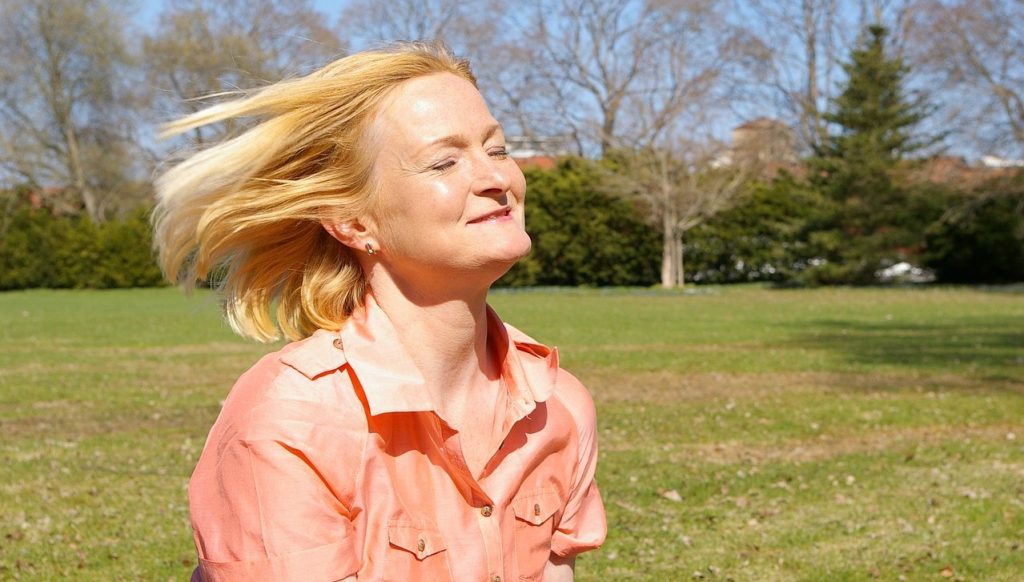Scientists found the first potential explanation for menopause & it’s really beautiful
(Collective Evolution | Kalee Brown) Let’s be honest: You probably have nothing good to say about menopause. Society (especially women’s magazines) tell us it’s going to “suck” and doctors further perpetuate our fear of its symptoms. What’s worse, there is little research and scientific knowledge on menopause and why it occurs.
New study shows why menopause appears in orcas
Menopause is so mysterious in part because it’s rare in nature. Most other species don’t experience menopause and the symptoms related to it; in fact, the only species within the entire animal kingdom that endure menopause are orcas and short-finned pilot whales. This is strange because countless other species reproduce throughout their lives, so why would only humans, orcas and short-finned pilot whales be a part of this phenomenon?
A new study led by the University of Exeter in the UK has found a potential answer to this question. According to their research on orcas, the simple answer is that female orcas go through menopause and stop reproduce when they’re older because their offspring cannot compete with the offspring of their adult daughters. This means that when older orcas reproduce while their older daughters are reproducing as well, this creates a “mother-daughter conflict.”
According to the US Centre for Whale Research and Fisheries and Oceans Canada, the mortality rate amongst calves born from orca grandmothers is 1.7 times higher than those born from younger orcas. This evidence actually supports a theory proposed in 2008 known as the “reproductive conflict hypothesis,” which suggests older females stop reproducing as a result of a cost/benefit analysis: the cost of competing with their daughters and the benefits of being a grandmother.
Daniel Franks, Behavioural Ecologist and researcher on this team, explains, “It’s easy to think that an older female will pass on their genes better by continuing to give birth in late life… But our new work shows that if an old female killer whale reproduces, her late-life offspring suffer from being out-competed by her grandchildren. This, together with her investment in helping her grandchildren, can explain the evolution of menopause.”
It’s important to note that female orcas start reproducing at approximately 15 years old and stop around 30 or 40. They then go on to live to around 90 years old, whereas males don’t usually survive beyond their 30s. As a result, the grandmother orcas end up leading the pods, making them responsible for finding food and taking care of their entire extended families.
Interestingly enough, orcas typically grow up without their fathers around, but their mothers remain attached to their pods. Perhaps that’s why female orcas live longer than males, because their love for their offspring is so strong that they want to stay alive to help their offspring survive.
The researchers believe that because the orca grandmothers feel responsible for the wellbeing of their entire pod, they’re more likely to share food with others. In comparison, younger orca mothers are more concerned with the health of their own children, so they share less food with others and feed their offspring more. The researchers theorized that this is why the offspring of younger mothers are more likely to survive than that of grandmothers.
The team believes that these findings could represent an explanation for human menopause, but that will be left for further research to confirm. Either way, it’s truly beautiful that orcas are so compassionate and loving and that their love for each other literally affected their ability to reproduce. Perhaps women subconsciously choose to endure menopause for the love of their offspring, which ultimately altered their physical bodies in the same way orcas did.
The medical medium’s take on menopause
Prior to the 1950s, women actually enjoyed going through menopause because it represented a time where women experienced more energy and sex drive and a slower aging process. Then, women started to complain about headaches, hot flashes, and other severe symptoms that are now attributed to menopause. Doctors were quick to place the blame on a hormonal imbalance, which there is some truth to, but ignored any other potential contributing factors.
Around the same time, there was a severe increase in radiation and pesticide exposure, both of which could have caused many of the reported symptoms. During the 1950s, there was a huge jump in the use of DDT as it was sprayed on most crops and gardens. As women experienced this overload in toxins, they started to complain about what is now known as menopausal symptoms.
Another potential explanation is the Epstein-Barr virus (EBV), as this can take years (even 40) to build up in women’s bodies to the point of experiencing symptoms. According to the Medical Medium, one of the greatest missteps of all time is mistaking women’s Epstein-Barr symptoms for perimenopause and menopause. Symptoms such as hot flashes, night sweats, heart palpitations, dizziness, depression, hair loss, and anxiety were and are frequently misinterpreted as hormonal changes, which is what launched the disastrous Hormone Replacement Therapy movement (to learn more click here).
It’s clear that human menopause exists, but perhaps we’ve confused some of the symptoms. Whether you’re enduring menopause or experiencing similar symptoms as a result of another cause, the Medical Medium maintains that you could mitigate your symptoms and decrease your toxins intake by using the following foods and herbs: wild blueberries, sesame tahini, avocados, black beans, asparagus, apples, spinach, black grapes, cucumbers, raspberry leaf, nettle leaf, chaste tree berry, and elderberry.
So, how do I deal with my menopausal symptoms?
I believe that many of the health issues we experience are a reflection of what’s going on inside of us. Our reproductive organs are linked to our sacral chakra, which governs our emotional openness, creativity and sexuality. If you start to experience a physical shift in regards to these organs, you will experience an energetic shift as well. This could push you to experience changes regarding your sex drive (like menopause is known to do) and your emotions. Hot flashes could also be linked to energetic shifts in both the sacral and the solar plexus chakras.
Plus, if you’re stressed out about the potential menopausal symptoms you’ve heard others complain about, this may become your reality. Many women approaching their 40s start to worry about menopause and begin to dread aging, which can manifest into the physical realm. My best advice to you is to stop worrying about the future and start living in the Now. However, that doesn’t mean you shouldn’t take preventative measures like decreasing your intake of toxins, improving your diet, and naturally balancing your hormones!
Of course, you should see a licensed medical doctor or preferably a naturopathic doctor if you’re experiencing menopausal symptoms. In addition, there are clearly some steps you can take yourself to mitigate your pain and stress. The following CE article addresses symptoms and natural cures for hormonal imbalances: 7 Effective Ways To Balance Hormones Naturally.
Source: Collective Evolution




